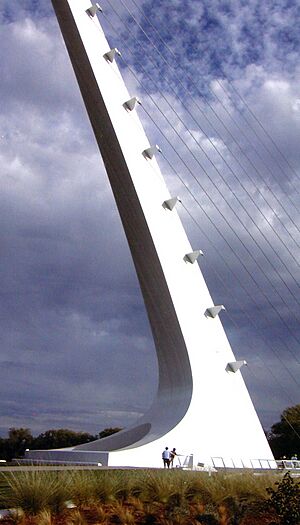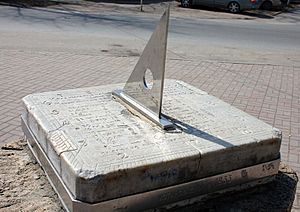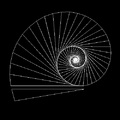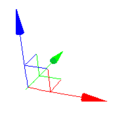Gnomon facts for kids
A gnomon is a special part of a sundial. It's the piece that casts a shadow. This shadow moves throughout the day, showing the time. The word "gnomon" comes from an ancient Greek word. It means "indicator" or "that which reveals."
In places like the Northern Hemisphere, the gnomon usually points north. It also tilts at an angle that matches the latitude of where the sundial is. This helps it cast the correct shadow as the Earth spins. Some gnomons stand straight up. These were used long ago to measure how high the sun was in the sky.
The part of the gnomon that actually casts the shadow is called the style. The style can change as the sun moves. For example, one edge might cast the shadow in the morning. A different edge might cast it in the afternoon.
Building Sundials: Gnomonics
The skill of making a sundial with a gnomon is called gnomonics. It involves understanding how the sun moves. It also requires knowing how shadows change throughout the day and year.
History of the Gnomon
The ancient Greeks learned about the gnomon from the Babylonians. A Greek thinker named Anaximander is often given credit. He helped bring this useful instrument to the Greeks. Sundials and gnomons have been used for thousands of years. They were important tools for telling time before clocks existed.
Images for kids
See also
 In Spanish: Gnomon para niños
In Spanish: Gnomon para niños
 | Charles R. Drew |
 | Benjamin Banneker |
 | Jane C. Wright |
 | Roger Arliner Young |







